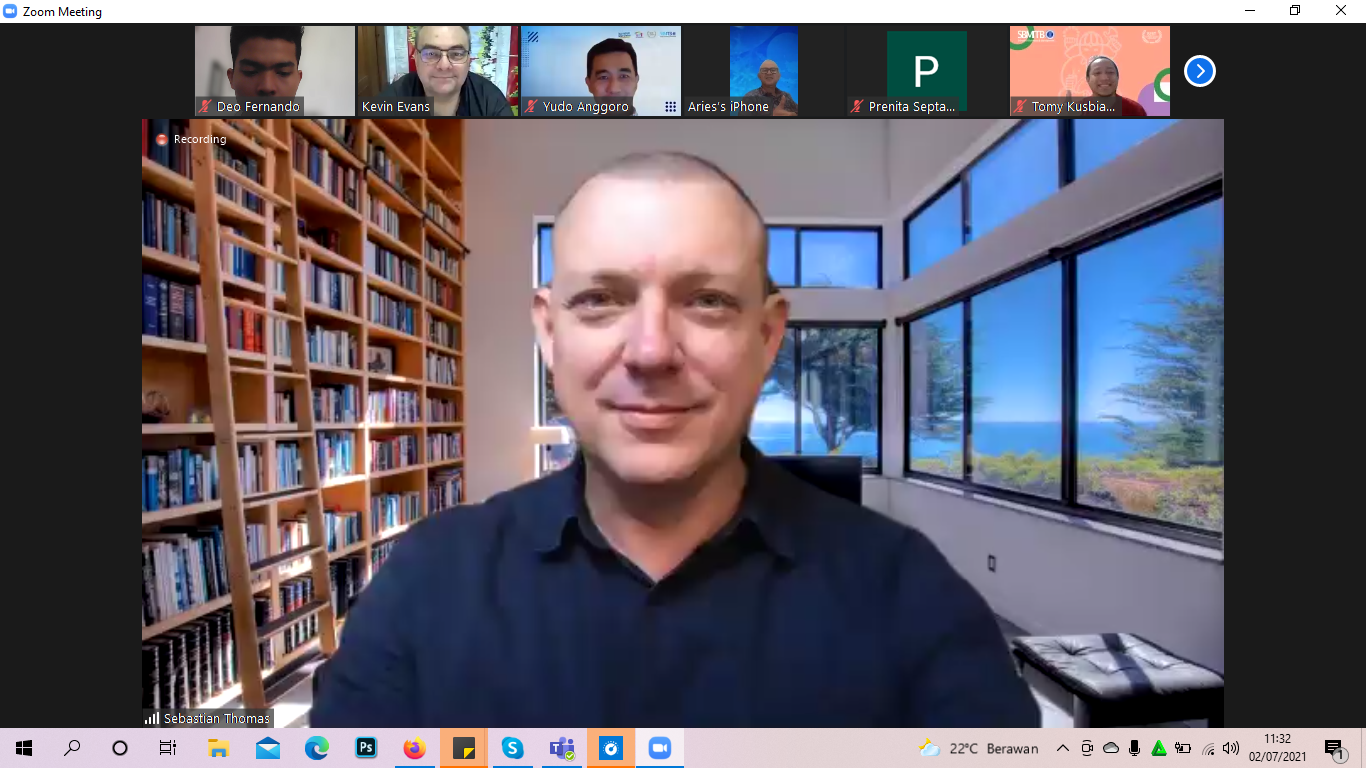The ocean is the most significant component of the earth, covering 70 percent of the planet’s surface and contains 97 percent of all water on earth. However, 60 percent of major marine ecosystems have been degraded or are being used unsustainably. The marine environment is in crisis, facing a systemic threat.
It was mentioned by Dr. Sebastian Thomas, an adjunct Professor at the Curtin University, through a public lecture organized by SBM ITB entitled “Blue economy and sustainable development.” In the webinar, he highlighted the blue economy, ocean, and earth system and the challenges.
The blue economy is a concept of developing the world economy with sustainable principles, which is encouraged to be applied globally to the fisheries and marine sector. “The blue economy is the sustainable use of marine resources for economic growth, improvement of livelihoods and jobs, and the health of marine ecosystems,” said Sebastian on Friday (2/7/2021).
Sebastian added that the blue economy encompasses many activities: renewable energy, tourism, climate changes, fisheries, waste management, and maritime transport. These segments have a high value on the economic side.
“The worldwide ocean economy is valued at around US 1.5 trillion per year,” said Sebastian.
He continued that the ocean also plays an important role in human life. 90 percent of global trade by volume is carried by sea, 350 million jobs worldwide are linked to fisheries, and by 2025 it is estimated that 34 percent of crude oil production will come from offshore fields.
As a maritime country, Indonesia has tremendous blue economic potential, from the tourism side, marine products such as fisheries, mining to coral reef conservation for environmental sustainability.
However, the Indonesian blue economy is still not optimized yet. Sebastian revealed some challenges that could undermine the potential of Indonesia blue’s economy. Firstly, the nation’s marine capture fisheries are overfished; secondly, around one-third of Indonesia’s coral reefs are in poor condition; third, marine debris costs over the US $ 450 million per year; and lastly, over 50 percent of mangroves is in a degraded condition.
Then Covid-19 also worsens the growth of Indonesia’s blue economy. “Further, the Covid-19 pandemic has affected the oceans sectors adversely, such as the dropping of fish price and tourism, and the increasing medical waste on beaches,” commented Sebastian, who is also A board member of the International Sustainable Development Research Society (ISDRS).
As a key message, Sebastian closed the presentation by highlighting the importance of supporting sustainability, sustainable development, and resilience in marine and coastal social-ecological systems. Besides, a stronger, more inclusive, and equitable governance is needed to pursue sustainable development.





